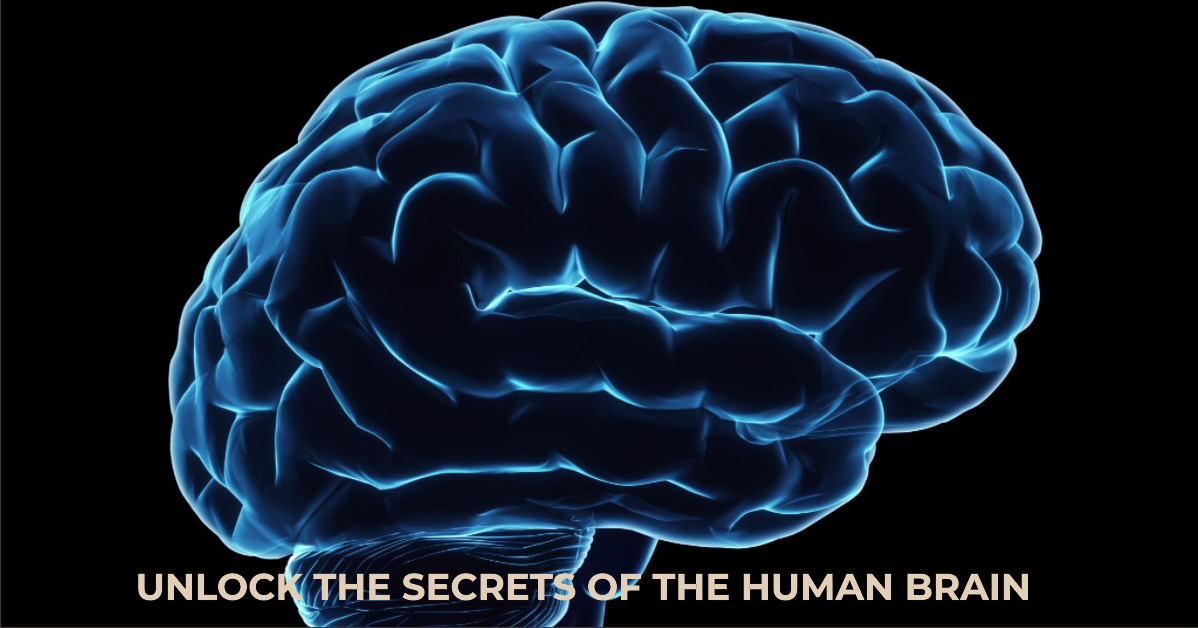A Comprehensive Guide: Understanding the Inner Workings of the Human Brain
The human brain is an astonishingly complex and powerful organ that plays a central role in shaping our thoughts, behaviors, and experiences. In this comprehensive guide, we will embark on a fascinating journey to explore the inner workings of the human brain. From its intricate structure to the incredible cognitive processes it orchestrates, we'll demystify the brain's functioning and offer insights into maintaining brain health.

The human brain is often described as the most remarkable organ in the body, and for good reason. It is the command center of our thoughts, emotions, and actions, driving our very existence. But how well do we truly understand this intricate powerhouse within our skulls?
In this comprehensive guide, we will delve deep into the inner workings of the human brain, breaking down its complex structure, exploring its essential functions, and shedding light on how we can optimize our brain health for a more fulfilling life.
The Remarkable Complexity of Brain Anatomy
The human brain is composed of approximately 86 billion neurons, each of which can form thousands of connections with other neurons. This staggering complexity allows the brain to process and store vast amounts of information, making it the most powerful computational device known to humanity.
Key Brain Structures
To better understand the inner workings of the human brain, we need to acquaint ourselves with its major structures:
Cerebrum
- The largest part of the brain, responsible for higher-order functions like thinking, perception, and voluntary movement.
- Comprises two hemispheres, the left and right, each with distinct functions and characteristics.
Cerebellum
- Located at the base of the brain, the cerebellum plays a critical role in coordinating motor movements and maintaining balance.
Brainstem
- Connects the brain to the spinal cord and regulates basic life-sustaining functions such as breathing, heart rate, and sleep.
Understanding Brain Function
The brain is constantly at work, orchestrating a symphony of cognitive processes. Let's dive into some of the key things our brain does:
Sensory Processing
- The brain interprets information received through our senses, allowing us to perceive the world around us.
Memory and Learning
- The hippocampus, a crucial brain structure, plays a central role in memory formation and retrieval.
Emotions
- The amygdala is responsible for processing emotions, helping us respond to various situations with appropriate feelings.
Decision-Making
- The prefrontal cortex, located in the frontal lobe, is vital for complex decision-making, planning, and judgment.
Language and Communication
- Various regions in the brain are dedicated to understanding, producing, and processing language.
The Complexity of Cognitive Processes
Our brains are constantly at work, executing a myriad of cognitive processes. These processes allow us to think, feel, remember, and interact with the world around us. Some of the key cognitive processes include:
Perception
- How we interpret sensory information, allowing us to see, hear, smell, taste, and touch.
Attention
- Our brain's ability to focus on specific information and filter out distractions.
Problem Solving
- Utilizing reasoning and creativity to find solutions to complex issues.
Creativity
- The brain's capacity to generate novel ideas and solutions.
Planning and Decision-Making
- How we make choices and set goals based on available information.
Maintaining Brain Health
Understanding the inner workings of the human brain isn't just about academic curiosity; it's about ensuring the health and well-being of this vital organ. Here are some practical tips to help you take care of your brain:
Stay Physically Active
- Regular exercise promotes blood flow to the brain, contributing to improved cognitive function.
Eat a Brain-Healthy Diet
- Eating foods packed with antioxidants, omega-3 fatty acids, and other essential nutrients is like giving your brain a helping hand to stay healthy.
Get Quality Sleep
- Getting a good night's sleep is crucial for helping your brain store memories and work at its best.
Manage Stress
- Constant stress can harm your brain's well-being, so try out ways to relax and lower stress levels.
Stay Mentally Active
- Keep your brain active with things like puzzles, reading, or trying out new skills that give it a good workout.
Socialize
- Maintaining social connections and relationships can support cognitive health.
Conclusion
The human brain is a marvel of nature, and understanding its inner workings can enhance our appreciation for its incredible complexity. By exploring its anatomy, functions, and the means to maintain its health, we can better grasp the role it plays in our lives and ensure that it continues to serve us well.
We hope this comprehensive guide has shed light on the astounding inner workings of the human brain and provided you with valuable insights into optimizing brain health for a more fulfilling and enriching life










